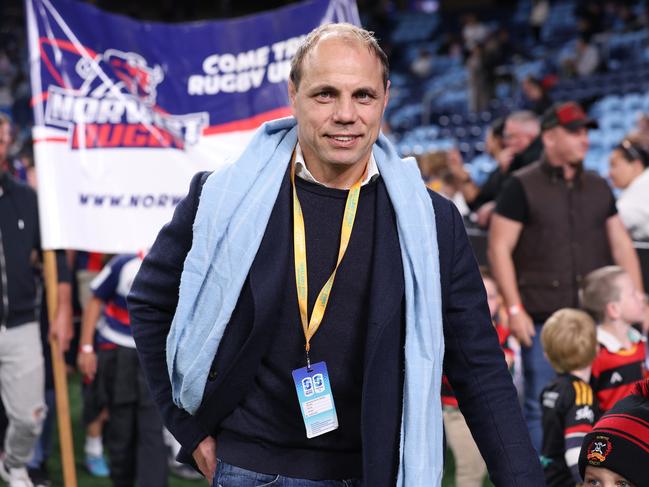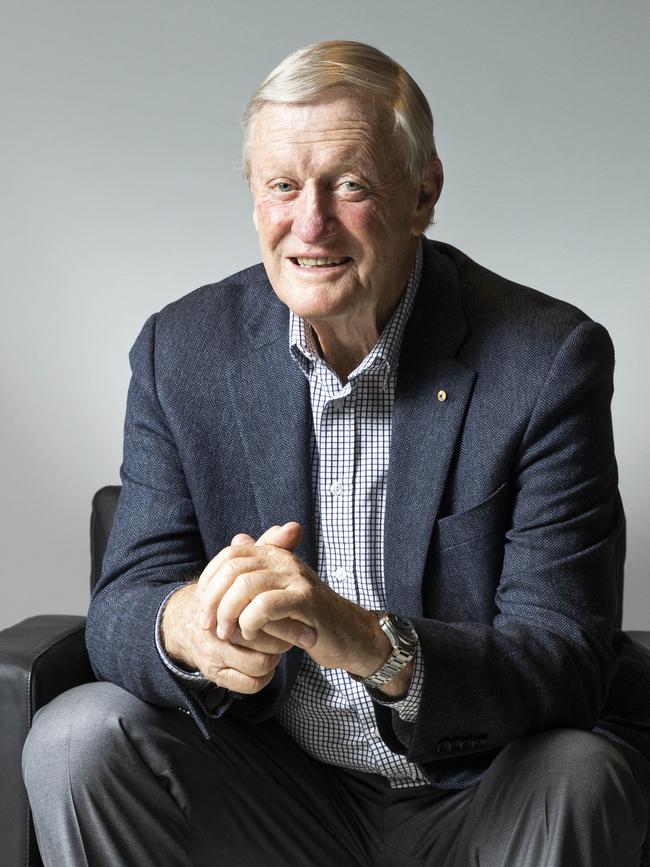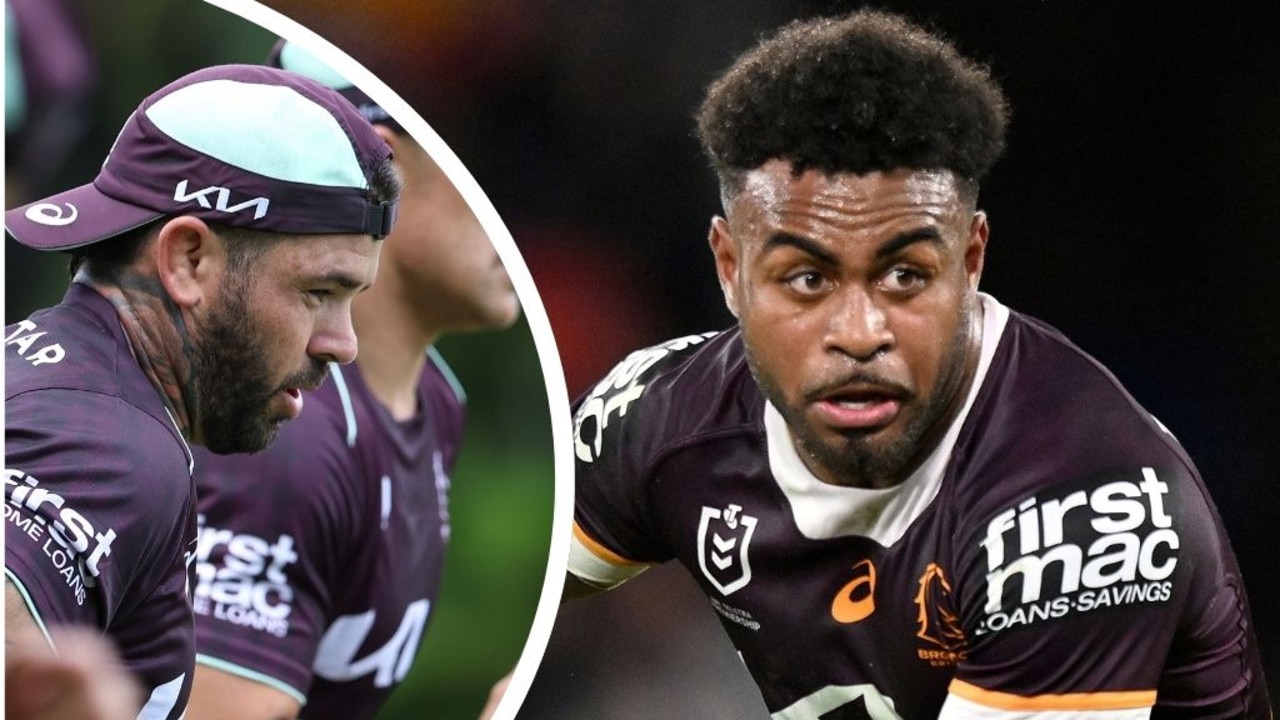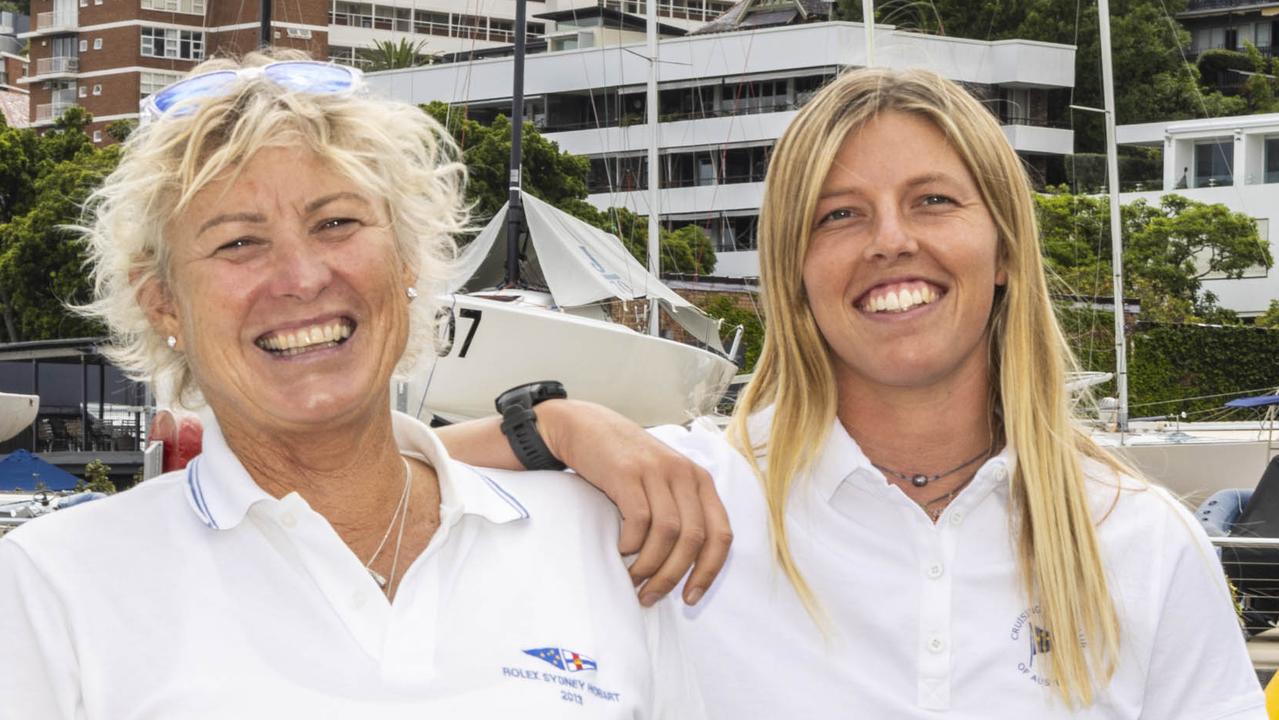Super Rugby Pacific braces for player exodus after demise of Melbourne Rebels
Super Rugby Pacific is bracing itself for a new headache in the league following the demise of the Melbourne Rebels.

EXCLUSIVE
Super Rugby Pacific is bracing for a player exodus following the demise of the Melbourne Rebels, which were officially “killed” four months after the club collapsed under a $22 million debt pile.
The Melbourne Rebels players and other stars in Super Rugby were understood to be entertaining offers from French and Japanese clubs, while NRL vultures were also circling.
Rugby Australia’s future was hanging by a thread, with chief executive Phil Waugh saying it was “technically” a going concern when asked about its $80 million loan.
The reduced number of Australian teams now casts into doubt the value of Super Rugby Pacific because New Zealand clubs had been demanding a strong competition.
They had been hoping for a rise in the next TV deal and wanted assurances Australian players would not flee overseas.
The Rebels’ extinction means that Rugby Australia’s current $29 million annual deal with the Nine Network and Stan was also at risk of a haircut.
Any savings from kicking out the Rebels, which cost Rugby Australia $6 million this year, were likely to be offset by reduced broadcast cash.
And former Rebels directors, who are personally liable for the club’s $7.8 million tax debt, are threatening to take legal action against Rugby Australia to force them to pick up the tab.

The implosion comes just six months after Rugby Australia ousted former chair Hamish McLennan in a boardroom coup.
Mr McLennan said on Thursday that the current board, headed by his replacement Daniel Herbert, had weakened the game.
“It’s obviously a complicated situation, but it’s pretty hard to shrink your way to greatness,” he said.
Mr McLennan took aim at Queensland rugby figures.
“A lot of banana benders have always wanted fewer teams, so I guess they got what they want,” he said.
Rugby Australia has been struggling to stay afloat following a cut-price TV deal with the Nine Network, signed after the code endured the Israel Folau debacle.
“Nine Entertainment will be licking their lips and now looking for a discount given there is at least 20 per cent less Australian content on offer,” Mr McLennan said.
“The NRL are the big winners as they soak up talent and airtime.”
Rebels prop Taniela Tupou, considered one of the world’s best in that position, was a significant flight risk as he could triple his $500,000 salary overseas.
Rugby Australia chief Phil Waugh has confirmed that players would be paid out their contracts.
He wanted to move the Rebels squads to other teams in Australia.
But player managers have already been fielding calls from international clubs for Melbourne’s stars next year.

The diminished league may also push star players at other clubs into the hands of international teams or the NRL as they look for top flight competition.
Waugh delivered the news to Rebels’ players at 10am on Thursday at AAMI Park, shortly before they were due to fly to Fiji for their final game of the season.
The Rebels will still play at least one finals game, which would be the first and last in the club’s 14-season history.
Waugh said on Thursday that the Rebels had cost Rugby Australia $6 million this season as it paid the wages bill of players and club administrators.
He said that the Melbourne Rebels board had put Rugby Australia under “enormous pressure”.
Waugh said it was a difficult decision to cut the Rebels, but argued he had no choice.
“I’ll keep coming back to the fact that we have limited resources, we have limited finances,” he said.
“And we need to invest in the game where it is going to drive the greatest connection to the community and uplift in participation.”

Rugby Australia’s 2023 annual report reveals the governing body was in negative equity - its debts were $13 million more than its assets.
That’s before the losses at the Rebels and the cost of bringing the New South Wales Waratahs into the fold were considered.
When asked whether the governing body was a going concern given its $80 million loan with Pacific Equity Partners, Waugh said: “Technically it is, yes.”
“The home British and Irish Lions tour and the World Cups in 2027 and 2029 are critical revenue events.”
The Victorian Government had wanted Rugby Australia to keep a team in Melbourne, but Waugh said he was still hopeful of hosting cash-cow World Cup finals at the MCG.
Super Rugby Pacific will go down to 11 teams next year, however they may make the season longer to meet requirements of the broadcast deal with Nine.
Nine owned newspaper The Age ran a rare editorial on April 30, calling on Rugby Australia to be saved.
The Melbourne Rebels had never made money during its 14-seasons and had been a considerable drain on Rugby Australia finances.


Rugby Australia chair Daniel Herbert said that the Melbourne Rebels board did not provide a full picture of its disastrous finances until it went broke.
Herbert said he was “very disappointed” in the Rebels board.
“I think they have let rugby stakeholders down in Victoria and rugby stakeholders more broadly,” Herbert said.
“And while this is not a crack at people individually, they are people who love rugby, we are now six years away from when Rugby Australia paid $13.8 million towards rebels debts back in 2017 and gave an additional $6 million of funding,” he said.
“There’s been tens of millions of dollars that has been spent on this franchise over and above other Super Rugby clubs, and (now its) to be $23 million in debt again.”
The Rebels directors included investor Georgia Widdup, Lyndsey Cattermole, Tim North, KC, forensic accountant Owain Stone, businessman Paul Docherty, Neil Hay and Gary Gray. Herbert acknowledged the Rebels’ directors had threatened to sue Rugby Australia after it cut the club, but said any money spent on legal fees would be taken away from the game.
Melbourne Rebels consortium leader Leigh Clifford, father of Ms Widdup, said: “The fact that Rugby Australia recently chose to provide millions of dollars in financial support to the NSW Waratahs and provide not a cent to the Rebels says everything Victorians need to know about their priorities.
“The Melbourne Rebels never want to go to court, but Rugby Australia’s actions to turn their backs and not negotiate on a common sense $18 million rescue plan has left the Club no choice.”
The irony of the Rebels getting cut from the competition is that they outperformed the wooden spoon NSW Waratahs, who are in Australia’s largest rugby playing state.
stephen.drill@news.com.au





